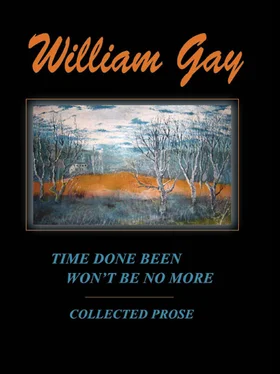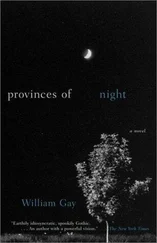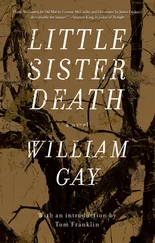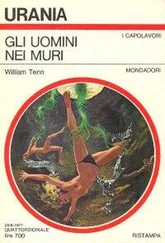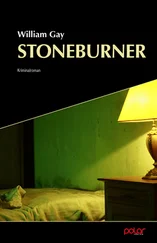He was born in Thomson, Georgia, either in 1898 or 1901, depending on which source you want to believe. By the time the McTells (or McTears: there’s another story that someone on the father’s side of the family had changed the name from McTell because of trouble with whiskey stills and government revenuers) had moved to Statesboro, Willie had been shown the rudiments of guitar playing by his mother, and he gathered more skill from neighbors and visiting pickers and whomever he met, soaking it all up. Already he was writing songs in his head and changing other tunes to his liking and already he was developing an affinity for wandering, a habit that would stay with him all his days.
By the time he arrived in Atlanta, he’d also taken up the twelve-string guitar. He’d learned on the six-string, but had seen that for his purposes the twelve was infinitely better. With its complementary strings tuned an octave higher than the regular strings, not only was there more volume, but whether fingerpicking or using a bottleneck, the higher strings enriched the melody and elaborated on it. It also set him apart from other street musicians.
All these street pickers were living too close to the ground to know that they were part of the dawning of the richest, most complex period of American music. This period began around 1926 and would last only until the beginning of the Depression, and it would not come again.
Though McTell couldn’t have known it, by 1926 the record business was turning toward him. The sales of phonograph records had grown exponentially, and things were to a point where there was a lot of money to be made. To the surprise of executives in New York, people in the rural South bought a lot of music. A record by a fiddle player named John Carson sold faster than Atlanta record stores could restock it. This was the sort of news that got noticed in New York. People so poor they sometimes had to choose between a phonograph record or a new pair of shoes were opting for the music, choosing the magic over the practical, the mystery and wonder of their lives encoded into spiraling grooves of shellac.
McTell sings in Let Me Play with Yo’ Yo-Yo:
I’ll take all my money
put up against the wall
I’ll take what sticks
and you can have what fall.
Record-company owners were doing essentially this very thing. They were in the process of figuring out what sold best; they had not yet learned how to homogenize and move it toward a one-size-fits-all center, so they were throwing everything at the wall.
A lot of weird music was sticking; like Frank Hutchison’s bizarre take on the sinking of the Titanic, with do-si-do square dances being held on the lower decks and the captain inquiring, How’s your machinery? Or Dick Justice’s Cocaine, its imagery and cast of characters, furniture repo men, whipped babies, and women in alleys, the narrator simply wild about his good cocaine making a sort of jagged, surreal poetry that would soon vanish from popular music and not come around again until Bob Dylan surfaced in the early 60’s. The Okeh label was recording Dock Boggs, a Virginia coal miner whose dark music and eerie hollow banjo sounded like what you’d hear if you leaned your head against the door to hell to eavesdrop.
These three performers had in common not only that they were white, but the fact that they didn’t much sound like it. All three were steeped in the blues, a variant of it that would come to be thought of as white or mountain blues. The record companies were also recording a Texan named Blind Lemon Jefferson and a street singer named Blind Blake, and in 1927 Victor got around to Blind Willie McTell.
For a blind man, McTell possessed an amazing degree of self-sufficiency. He figured out the intricacies of the New York subway system and got wherever he needed to be.
He recorded again in 1928, this time for Columbia, and these two sessions produced classic songs like “Broke Down Engine” and “Mama, Tain’t Long Fo’ Day” and “Statesboro Blues” that would roll down the years and resonate with musicians like the Allman Brothers and the White Stripes long after McTell was gone.
His song Delia, a stoic, dark-humored account (took Delia to the graveyard, never brought her back) of a woman murdered by her lover (say you love them rounders, and don’t love me), reads like an O’Connor story or E.A. Robinson poem. Dylan covered it in the early 90s. Johnny Cash rewrote it as Delia’s Gone, but he kept the son’s air of detached, matter-of-fact violence.
Almost before it had begun, the boom was over. Something had fallen on Wall Street, folks said. Whatever had fallen, its echoes rippled on and on. The record business was hit hard, nowhere harder than in the rural South, sharecropper or millhand, black or white. First Reconstruction and now this Wall Street debacle. A choice between a new record and a little flour and lard is not really a choice.
Dock Boggs went back to the coal mines, Frank Hutchison went to work in a West Virginia grocery store, John Hurt went back to sharecropping in Mississippi. William Samuel McTell had nowhere to go except to the music he hadn’t even left, so he went back to Decatur Street and wherever his traveling shoes and traveling blues would take him. In the early 30’s, he sojourned all over the South with Blind Lemon Jefferson.
In 1934 he married Ruth Kate Williams, who long after McTell was dead would remember what he told her when she asked why he stayed on the road so much: “Baby, I was born a rambler. I’m gonna ramble until I die.”
Listening through McTell’s recorded work is almost like participating in a séance. Spirits come out of the dark, dead voices and the voices of folks not yet born when the recordings were made speak through the music, and amaze you at how much came from McTell.
The picking and strumming pattern he uses in songs like Mr. McTell’s Got the Blues shows up in Jimmie Rodger’s numbered blue yodels, and occasionally some of the words: She’s tailor made, she ain’t no handme-down . Eric Clapton uses the guitar lick and some of the words from Stole Rider Blues in his own Motherless Child. Taj Mahal and the Allman Brothers put their own spin on Statesboro Blues.
“Any good gal’s got a mojo but she’s tryin’ to keep it hid,” he sings on “Scarey Day Blues”, and over the years McTell had become adept at hiding his own mojo, swapping one mask for another, sliding adroitly from role to role as if simply changing clothes.
When word circulated that a new recording scout was in Atlanta, McTell immediately turned up with his guitar and a new persona, ready to make a record. He was Red Hot Willie Glaze for Bluebird, He was Blind Sammie for Columbia, and Georgia Bill for Okeh. He was also Blind Willie for Vocalion, Barrelhouse Sammy, and naming himself after a barbecue joint where the tips had been good, he was Pig n’ Whistle Red when he cut some sides for Regal.
When McTell was in his fifties he abruptly quit singing anything but spirituals. No more playful ribaldry like Let Me Play with Yo’ Yo-Yo, no more mojos Mama wouldn’t let him see. In 1957 he began preaching in the Mt. Zion Baptist Church in Atlanta. Maybe he heard the sand running in the glass. His widow said in an interview in 1977 that he was tired, that he said he wanted to get back to God.
His last recording session took place a year before he laid it all aside to follow religion. A man named Ed Rhodes, who ran a record store in Atlanta, heard that there was a blind guitar player singing for tips behind a bar called The Blue Lantern Club, a musician playing the twelve-string guitar and sounding just like Huddie Ledbetter.
Rhodes went to see for himself. It was McTell, and Rhodes, who owned some recording equipment, tried to persuade McTell to record for him. Considering that he had recorded for decades under a dozen different names, McTell was strangely hesitant, but ultimately he was talked into it. Over a period of several weeks, McTell loosened up and reprised an entire career’s worth of music. The songs were interspersed with accounts of his years on the road, an oral autobiography of his life and times.
Читать дальше
